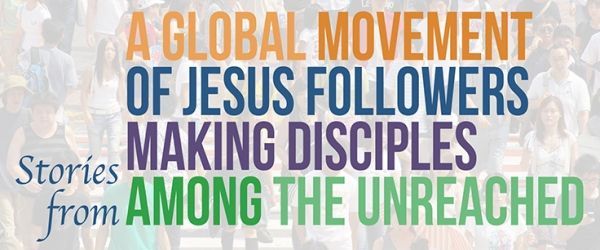
From the nations to the nations
This is part of a series of stories that illustrate how our workers around the world see SEND’s new vision statement— A global movement of Jesus followers making disciples among the unreached — becoming reality. This story focuses on “ global .” We believe that missions work is more effective when missionaries from many nations unite to reach many nations. Our members come from almost 20 different passport countries. Today, Maricel, a Filipina missionary to East Asia, shares about her experience.
• • •
In East Asia, patience is key.
“It takes a long time to introduce God here,” said Maricel, who has served several terms in East Asia. “I had one disciple where it took me almost a year of Bible study just to introduce who God is.”
Maricel learned patience back home, in the Philippines. Before she went with SEND to East Asia, she worked in corporate banking in Manila for close to a decade. She resigned from her job in 2002 and joined the staff of her home church where she was mentored and taught church-planting principles by two veteran SEND missionaries.
“I learned so much from them and from that experience,” she said. “I learned patience, hard work, perseverance, the value of discipleship and how important it is to invest in people.”
Moving to East Asia in the mid-2000s, Maricel worked first with an English language school and then moved to a central city where her primary ministry is discipling women.
She finds that her Asian heritage helps her make connections.
“I think one of the advantages of having an Asian face is that people are not intimidated by me,” she said. “I think this is generally true for all Asians — we tend to be quite easily intimidated by Westerners. Because I am not intimidating, women tend to open up more easily and express themselves freely, which leads to deep friendships.”
She sees great value in learning the language and adapting to the culture.
“There are matters of the heart where only your heart language can share and understand,” she said. “Culture is also very different even though I’m from Asia.”
It all takes energy, Maricel says.
“I spend most of my waking hours with the people that I am ministering to. I eat a lot of meals with them, visit them, meet their families and friends, hang out with them, go shopping, play games, watch movies — in short, do everything and anything possible just to get to know them and spend time with them. It is hard work, but it is so worth it!”
Maricel’s believes Asian workers are very effective in the country where she serves.
“The people here want you to listen to them, to be there for them, care about them. Of course my Western co-workers are caring and genuine, but Asians can really empathize with fellow Asians, especially when you talk about poverty, etcetera.”
Maricel values being part of a multinational team, working together to make disciples among the unreached.
“I believe that when you show genuine concern and love for people, it doesn’t really matter what culture or race you are from,” she said. “What is important is the heart because, eventually, that’s what people see.”
• • •
As part of SEND’s commitment to being part of a global movement of Jesus followers making disciples among the unreached , we offer the Global Worker Initiative. This program helps cross-cultural missionaries from low-income countries by covering some of their mission-specific expenses.
Click here to help send more missionaries like Maricel or to learn more about the Global Worker Initiative.
For security purposes, we do not use the real names of our workers in East Asia.
• Our total commitment to Jesus Christ fuels all that we do. Read SEND’s statement of faith.
• Learn about SEND International's mission, focus, and values.
Additional Posts





